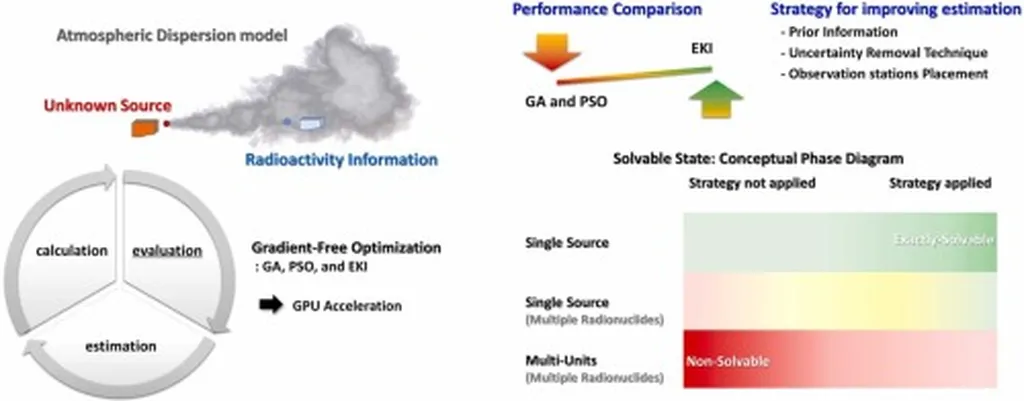In the ever-evolving landscape of modern systems, where adaptability is key, researchers are constantly seeking innovative ways to enhance resilience and efficiency. A recent study published in the journal *Systems and Soft Computing* introduces a novel approach to this challenge, leveraging a method inspired by nuclear physics to optimize complex, real-time microservices-based environments. The research, led by Maryam Nooraei Abadeh from the Department of Computer Engineering at the Islamic Azad University in Abadan, Iran, explores the application of Nuclear Reaction Optimization (NRO) to dynamically reconfigure systems, balancing performance, resource utilization, and fault tolerance.
The study focuses on the fusion and fission processes observed in nuclear reactions to merge and split system components, respectively. This dynamic adaptation aims to improve fault tolerance and modularity, ensuring that systems can evolve and adapt without compromising their resilience. “By mimicking the natural processes of fusion and fission, we can create a more robust and adaptable system that can handle the complexities of modern, evolving architectures,” explains Abadeh.
The results of the study are promising, with NRO outperforming traditional optimization methods like Particle Swarm Optimization (PSO) and Non-dominated Sorting Genetic Algorithm II (NSGA-II) in both resilience and resource management. This approach could have significant implications for the energy sector, where the ability to adapt to changing conditions and maintain high levels of performance is crucial. For instance, smart grids and renewable energy systems could benefit from the enhanced resilience and efficiency offered by NRO-based optimization.
The potential of NRO extends beyond the energy sector, with applications in various industries that rely on complex, adaptive systems. As Abadeh notes, “The ability to dynamically reconfigure systems to meet changing demands and maintain high levels of performance is a game-changer for many industries.” This research could pave the way for future developments in fields such as healthcare, finance, and transportation, where resilience and adaptability are equally important.
The study’s findings highlight the importance of interdisciplinary research in addressing complex challenges. By drawing inspiration from nuclear physics, Abadeh and her team have demonstrated the potential of energy-based optimization methods in enhancing the resilience of modern systems. As we continue to grapple with the complexities of our increasingly interconnected world, such innovative approaches will be crucial in building more robust and adaptable systems.
In the realm of energy, where the demand for efficient and reliable systems is ever-growing, the application of NRO could lead to significant advancements. From optimizing power distribution networks to improving the performance of renewable energy systems, the potential impacts are vast. As the energy sector continues to evolve, the insights gained from this research could play a pivotal role in shaping the future of energy management and distribution.
The study, published in *Systems and Soft Computing*, represents a significant step forward in the field of optimization and resilience. By leveraging the power of nuclear reaction-inspired methods, researchers have opened up new possibilities for enhancing the adaptability and efficiency of complex systems. As we look to the future, the insights gained from this research will undoubtedly inspire further innovation and progress in the quest for more resilient and efficient systems.

